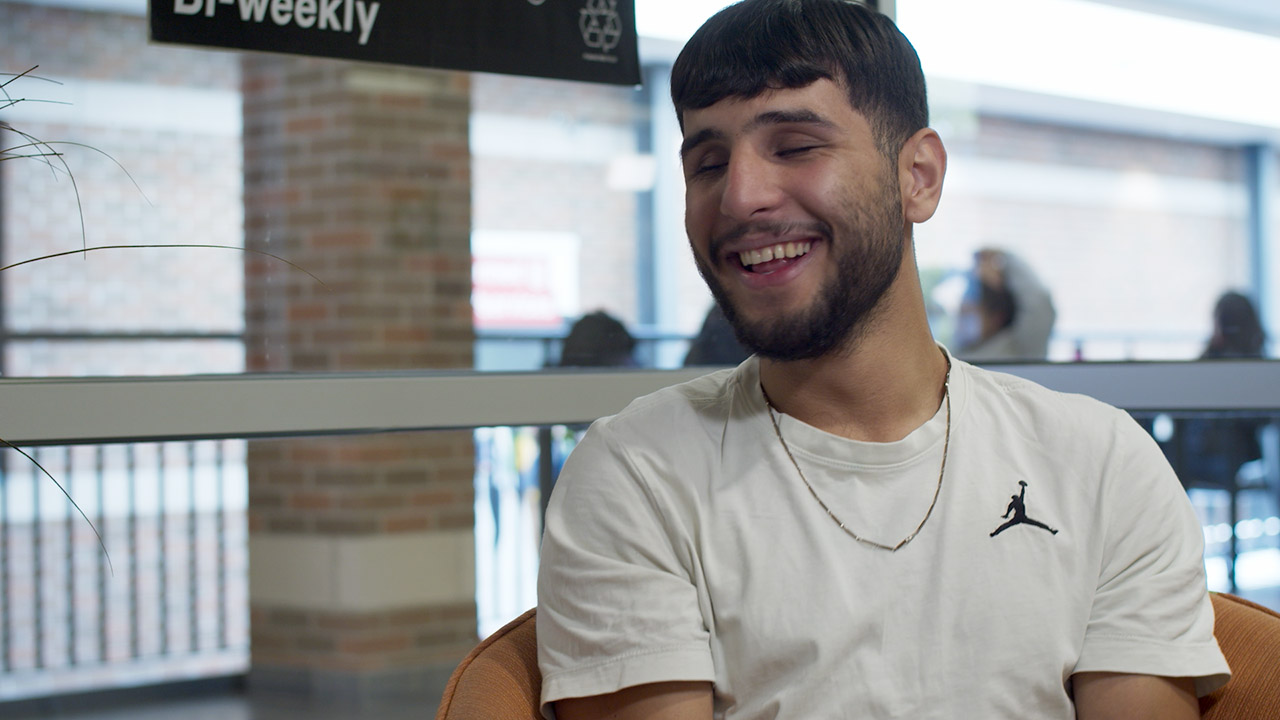Navigating Fanshawe with vision impairment
 CREDIT: BRANDON GRUBB
CREDIT: BRANDON GRUBBAlan Kalash (pictured) has a goal of making the world more accessible for others.
Fanshawe defines accessibility as “making our information, services, and environment available to as many people as possible.” That includes students with special needs like Alan Kalash, a person with vision impairment. Kalash graduated from the Human Services Foundation program and is now studying business at Fanshawe. He has big plans for when he completes his studies.
“I’m going to do a business about accessibility, in general, and how to make things accessible. And I want to make devices to help others,” said Kalash.
Kalash knows what it’s like to have to adapt wherever he goes. That’s why he was impressed when he arrived at Fanshawe College.
“I realized they have fantastic accessibility,” Kalash said. “They have a lot of support for students with special needs. The library, the accessibility services, or other services in the college.”
According to reference specialist Carlie Forsythe, “There’s been in the library a lot more emphasis on [Accessibility for Ontarians with Disabilities Act (AODA)] and a lot more focus on making things more accessible.”
The AODA was enacted in 2005 by the Legislative Assembly of Ontario in Canada. It aims to improve accessibility standards for Ontarians with physical and mental disabilities to all public establishments by 2025.
“In the library, we try hard to ensure that students feel welcomed and can access our resources, including our various services,” said Forsythe. “For example, our website is now much more accessible than initially. So, folks with visual impairments should be able to navigate the website better. We also do assessments yearly, so we go into different library databases and ensure everything’s accessible. So, some databases are better than others. But we’re always just trying to improve.”
Data specialist Raghav Bali explained that he has been in talks with one of Kalash’s professors so that they could accommodate his needs better.
“I was helping Alan put all the information he had gathered and collected throughout, and I was visually helping him. So, the professors have been very understanding and accommodating, and they also allow Alan a deadline extension, because they understand it takes time for him.”
Despite these great resources on the part of the institution, Kalash explained that there is still room to grow. He specifically mentioned the limited signs for people with vision loss and expressed a need for a tactile warning about stairs.
“If you have vision loss, you must face many challenges and get used to it. And that’s honestly who I am, which pushes me forward, to be honest. You know, I’m not afraid. I’m not scared of significant challenges. I can overcome those challenges, no matter what they are. I can do it.”















